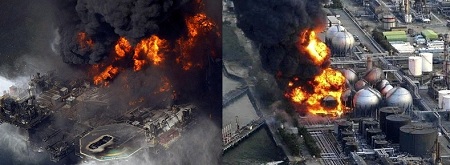Pakistan: CIA drone kills 25 on eve of mass protest against US missile strikes
Keith Jones
WSWS

Pakistani protesters belonging to United Citizen Action shout anti-
US slogans during a protest in Multan on April 22, 2011 against the
US drone attacks in Pakistani tribal areas. (STR/AFP/Getty Images)
A US predator drone strike killed 25 people in the village of Spinwam in North Waziristan yesterday. According to a Pakistani government official, the dead included at least five children and four women.
In response to mounting public outrage, Pakistan’s government has repeatedly denounced the US drone strikes in recent months, calling them “unhelpful” and urging that they be discontinued or at least massively scaled back. But the Obama administration and the Pentagon have brushed these complaints aside, publicly insisted that the missile strikes are a pivotal part of the AfPak War, and continued to mount such strikes at a rate of well over one per week.
While Washington postures as the foremost proponent of international law, it claims the right to violate Pakistani sovereignty at will, so as to carry out summary executions with callous disregard for civilian life.
Yesterday’s missile strike came on the eve of a two-day mass sit-in against the drone attacks that its organizers claim will mobilize hundreds of thousands of people. Protesters—including persons who have been displaced by the drone strikes and the counterinsurgency war that the Pakistani military has mounted against anti-US militias in the tribal areas of Pakistan’s majority-Pashtun northwest— are to take to the streets of Peshawar, with the stated aimed of disrupting NATO shipments to Afghanistan.
Claiming it fears violence, Pakistan’s government has announced that the US-NATO supply shipments will be suspended for the duration of the protest
The capital of Khyber-Pakhtunkwa (the former North West Frontier Provinces), Peshawar serves as the administrative center for the Federally Administered Tribal Areas (FATA)—the site of virtually all the US drone attacks.
Peshawar is also the gateway to the Khyber Pass, a vital supply line for US and NATO forces in Afghanistan. While the US has gone to great lengths in recent years to develop alternate supply routes, the bulk of the food and fuel that supports the almost 150,000 US-NATO forces in Afghanistan still goes through Pakistan.


























